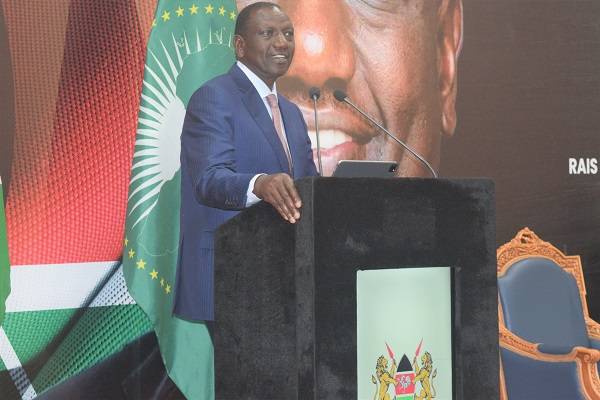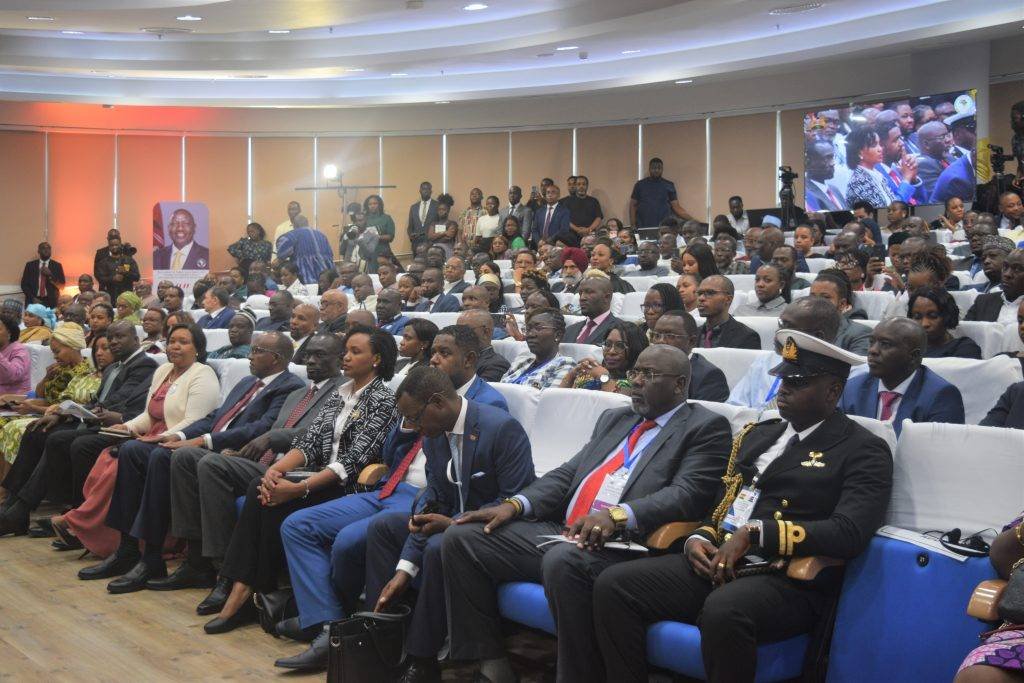
The President of Kenya, Dr William Ruto, says the African Union (AU) is working to ratify all financial institutions within the Union as part of efforts to enhance intra-trade and commerce among African countries.
According to him, this would go a long way in developing the needed financial architecture to provide the needed support to African businesses, especially following the implementation of the African Continental Free Trade Area (AfCFTA) agreement.

Speaking in Accra yesterday during a meeting with private sector stakeholders, he explained that the move would expedite the realisation of the AfCFTA.
The meeting, which formed part of President Ruto’s three-day official working visit to Ghana, was convened by the Secretary General of the AfCFTA Secretariat, Wamkele Mene.
Currently, he stated that Africa spends about $5 billion annually to deal with exchange rate issues, a situation he described as inimical to businesses engaged in intra-trade on the continent.
“I will be working with President Nana Akufo-Addo to ensure that all financial institutions under the AU are ratified, so that we can build the necessary financial ecosystem to support trade, investment and business in our continent,” he said.
The establishment of the Pan-African Payment and Settlement System (PAPSS) by the African Export-Import Bank (Afreximbank), he noted, would address all exchange rate challenges.
“The introduction of the cross-border instant payment system for easing the pressures on current accounts and demands on foreign exchange liquidity is to ensure we don’t lose in trade because of different currencies,” President Ruto added.
He commended Ghana for the support of the AfCFTA secretariat to ensure the agreement was implemented in a timely manner.
The AfCFTA, he said, was a significant instrument which could end the continent’s poverty situation, and called for enhanced synergy among African governments to create institutions geared towards the achievement of its objectives.
On his part, Mr Mene noted that the AfCFTA presents a unique opportunity to tackle the colonial economic model to facilitate movement of goods and services across the continent, create jobs and formalise the smallholder farming.
Despite the implementation challenges, he said, the lessons of other regional trade agreements have been incorporated to make the AfCFTA workable.
Key amongst the lessons was the development of the AfCFTA with legally binding obligations to all countries and governments to ensure objectives were achieved.
Presently, the secretariat, Mr Mene noted, was working towards the rollout of the protocol on digital trade and the protocol on women and youth in trade to create opportunities for young Africans and women and ensure inclusive economy and trade.
He reiterated the secretariat’s commitment to working together with the AU, governments and other stakeholders to ensure the AfCFTA becomes a success.
BY CLAUDE NYARKO ADAMS







